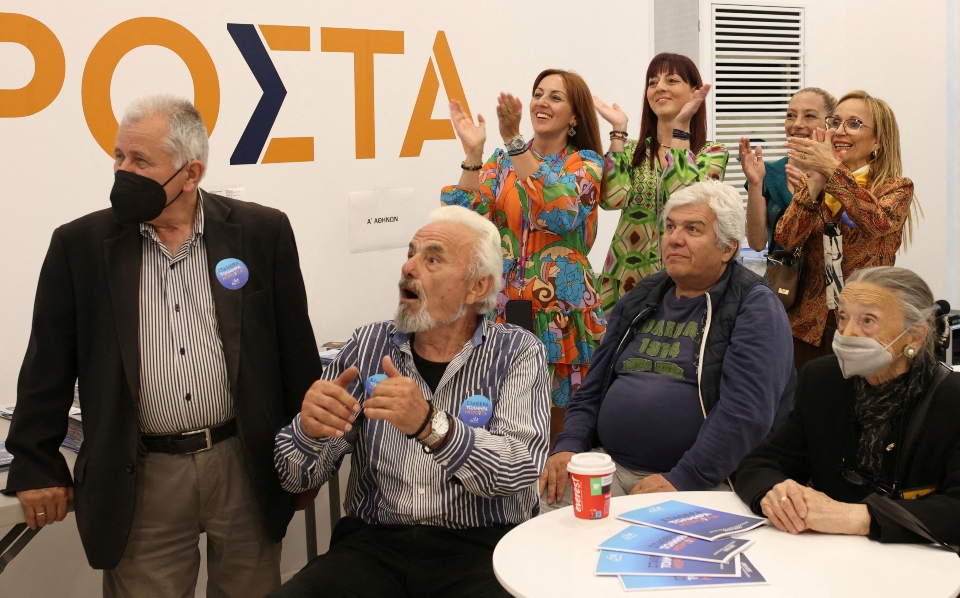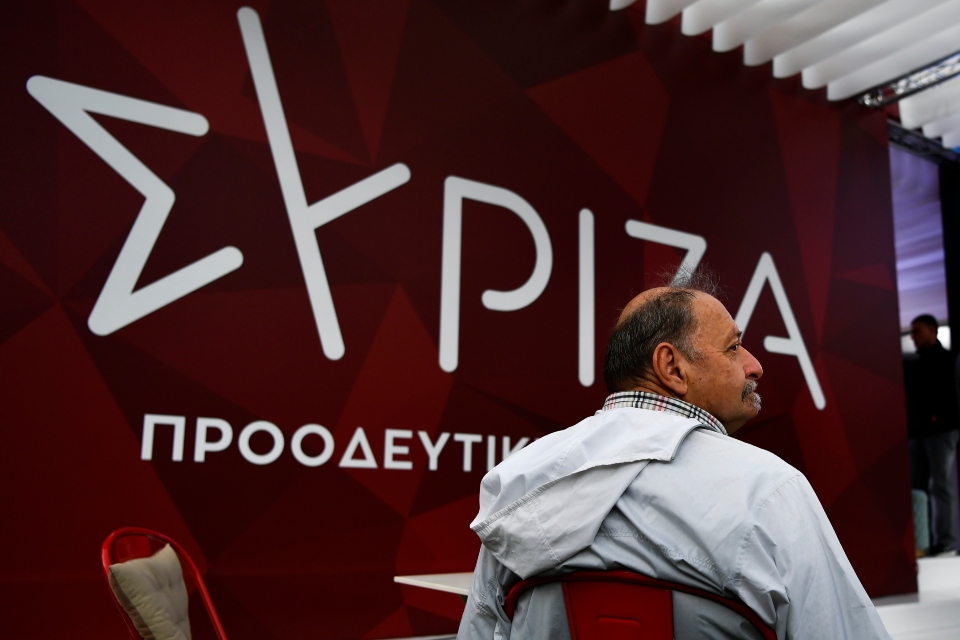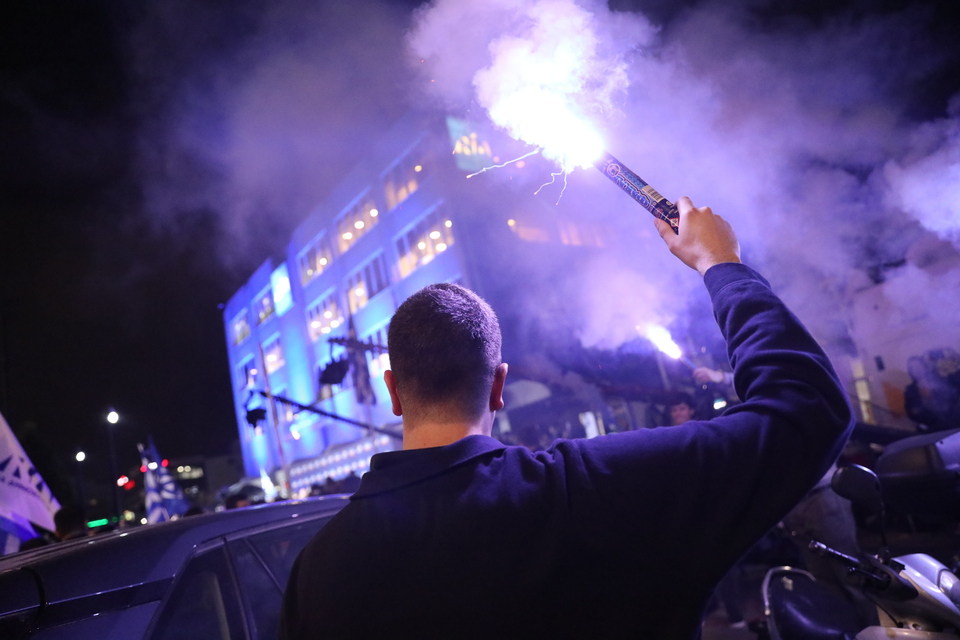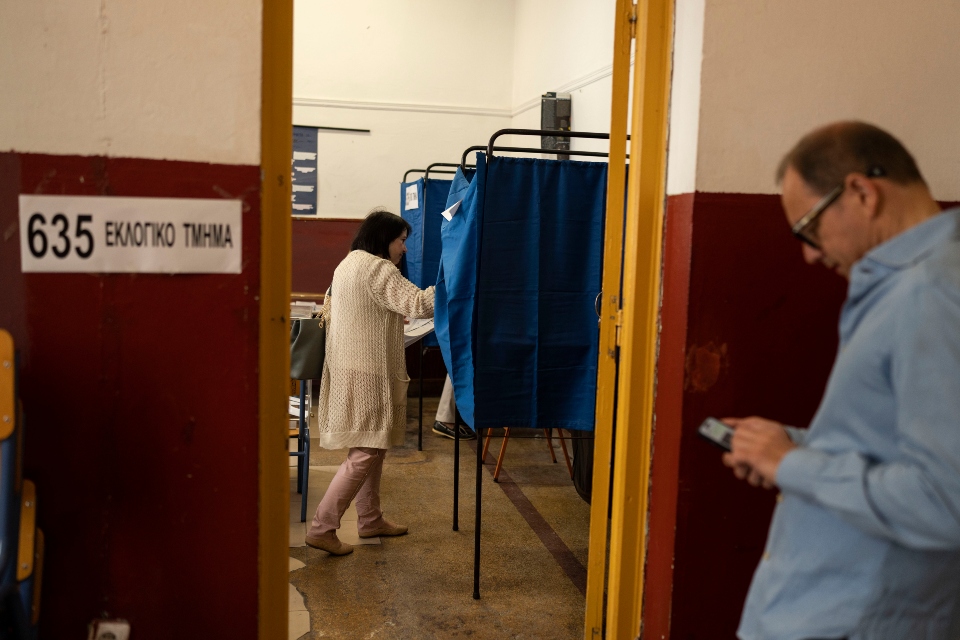
“I feel like I’ve lost touch with reality” my friend told me yesterday, shortly after the first election results they began to appear on our screens and refute every poll, even the one that preceded it.
scissors between New Republic And SYRIZA grew to such an extent that the first party registered twice as many percentages as the second, and Komundura, from where she believed she had a claim to power, found herself called upon to ask and answer persuasive questions about how she was moving forward. For PASOK The result was incredibly good, if not perfect. Day25 she stayed out of parliament while the party was on her doorstep win Dimitris Natsios, a political formation with a pronounced patriotic, religious and pro-Russian character, about which “no one knew”, but polls showed the opposite.
My friend hesitated until the very end about her vote, which she would have given to one of her parties anyway. left And she, like many others in this wider ideological space, believed that the overthrow of the current government was entirely possible, or that at least the percentages fixed by the ND would be low and lead “by force” to some next round of elections. in a collaborative government.
Certainly, these predictions fell short from state to state. Even if a walk through the “left chronologies” during the entire pre-election period – but also during all four years of government – outlined an atmosphere of disappointment, but mostly anger, feeling “so far” and the world is so full that he is counting down to “denigrate” the right.
Obviously, this wave of voters also existed, but as it turned out, it was significantly less than many might think based on what they saw (mostly) in social media and, accordingly, they discussed in their wider social circle. Simply put, we found that all along someone’s political reality was not the political reality that existed “out there”, everybody moved in the safe “bubble” which gave him the information and persuasion he wanted, even if it wasn’t applicable a few feet away.
Politics as a “microcosm”

We’re talking absolute the dominance of the “microcosm” in political life. To help us better understand this phenomenon, Mr. Anthony Galanopoulos, political scientist, goes a little into the past, to 2016 the year the UK was divided Brexit and the US his election Trump. French philosopher and epistemologist Bruno Latour then characterized these two events as a “double shock”, as two “unrealistic ‘bubbles’ that represented two camps in each case” as the analyst notes. And he continues: “He explained that the existing problem is that these two bubbles move in parallel, that is, societies are essentially divided into two parts, where each part not only has no contact with the other reality, but ultimately with its own reality. . own from reality.”
“The official opposition did not recognize and did not agree that the political cycle of the crisis closed in 2019.”
This is what happened with yesterday’s elections. We must first turn to party insiders to explain his many surprisingly low percentages. SYRIZA which overnight turned from a potential party in power into a medium-sized party. What happened like “He seemed to have lost touch with a large part of the population, which moved very differently from the one he was trying to create with his campaign speech,” says the analyst. Ultimately, “the official opposition did not recognize or accept that the political cycle of the crisis ended in 2019, continuing in a political discourse and rhythm very different from the new treaty that has been concluded since July 2019.”
In turn, citizens in many cases they didn’t see exactly what happened in those four years, not only during the New Democracy, but also at the grassroots level. “It is these elements that determine the result, and probably no one has recorded and correctly interpreted these changes,” explains A. Galanopoulos.
“Elections and Resurrection is the only chance we have to see the rest of the real world”

A huge part of the political game is played naturally Online last years. We can see repetitive posts of anger and waves of opinions that give us the feeling that the whole of society, or at least a very large part of it, moves along a certain trajectory.
But we must not forget what these environments are like. the digital ecosystems we have defined with the “neighbors” we have chosen. In this state, “it is very easy to silence any voice that seems annoying,” comments A. Galanopoulos. If we switch to real life, then this is of course impossible: “We have not chosen, for example, other people who live in our apartment building, so if we are all together in one place, there will be problems, we need to listen to different opinions “.
And just like that, we’re on our way. As characteristically observed Thodoris Georgakopoulos, journalist, writer and editor-in-chief of diaNEOSIS, “Elections and Resurrection is the only chance we have to see the rest of the real world.” Indeed, these are two of the few cases where we (almost) all co-exist, regardless of our individual characteristics and origins.
“Too many people who can’t believe the election results should probably take a hard look at themselves today. Introspection because the world is not what they think it is.” calls T. Georgakopoulos. Not a few disillusioned voters are now attacking the Electoral College and the result it produced. dangerous, as the author notes.
The way we consume content and therefore news, opinions, beliefs in recent years creates “bubbles”, which is to be expected, but “we turn these” bubbles “into bunkers, this leads to such distortions”, confirms the editorial director of diaNEOSIS.
Returning to real life, if someone forced us to coexist with people who are very different from us, we would see that the society is very different from what we have in mind. “Then if we transfer all this to social networks, we create entire communities in which we are with our friends and with people who think more or less the same. And this clearly strengthens our position.” concludes A. Galanopoulos. However, “in an ideal world, we would actively seek such contacts and conversations with people who are not like us. There is only profit from this,” adds T. Georgakopoulos.
However, there is one more thing to note, this is self-limiting: when, even informally, we consider ourselves to belong to something, we can often enter into a logic of self-censorship for the alternative opinion we may have that deviates from what the mainstream narrative of the political space in which we place ourselves wants. “Some people today have built a very strong, rigid and closed identity, they have a strong belief that the world should be the way they see it.” T. Georgakopoulos also concludes.
The Toxicity of Political Discourse on Social Media

Many people set the tone on social media. Thus, the level of political dialogue in them is also done toxic by nature. “The algorithm is designed to promote more controversial speech that generates a reaction and engagement that makes the other person want to respond, like swear, fight, because that way more views come in and therefore more ads. This gradually, when done over a long period of time and by billions of people, together forms a toxic environment,” T. Georgakopoulos analyzes.
Also, if we want to be honest, facebook now it has become a place where middle-aged and old people fight for politics and Twitter in the English-speaking world, it has become a reservoir increasingly closer to the far right.
Changing the algorithm is not easy, but you can try to go beyond it.
Communication always, everywhere and with everyone

Many were stunned when they saw the party win threateningly approach Parliament, the party of the most “well-read” snub-nosed and almost “exotic fruits” on the voting lists, with no chance of gaining real political power. Such phenomena they sometimes burst our “bubbles”. and they come to show us that there is another world – let’s remember that such a belief in a small education existed for the Golden Dawn as well, until we saw her sitting on the pews of parliament.
Therefore, we must keep our eyes and ears open. “Talking every day only to people you agree with and coming out of the bubble only to berate the people in front of you doesn’t help.” as Thodoris Georgakopoulos says.
To support their argument, the journalist and the author refer to the research of Professor Rick Wilson who studied populations emerging from major conflicts. “The study concluded that the only way for people who are fundamentally different from each other to coexist is to participate in common activities, be with each other and work towards common goals. When you connect with another person and open them up better, it’s hard for you to reject them based on their identity. That’s what we’re missing here.” Comments.
“If this election campaign teaches us a lesson, it is that it should open your ears a little and see who we really are” concludes T. Georgakopoulos. That is, to look with compassion a little beyond our own identity and to accept many other existing identities.
Which are often near us. The next time we go to a kiosk or a nearby hairdresser, or a taxi driver catches up with us, let’s try to have a meaningful conversation. Even if it doesn’t lead to any convergence, he has a lot to teach us.
Source: Kathimerini
Emma Shawn is a talented and accomplished author, known for his in-depth and thought-provoking writing on politics. She currently works as a writer at 247 news reel. With a passion for political analysis and a talent for breaking down complex issues, Emma’s writing provides readers with a unique and insightful perspective on current events.